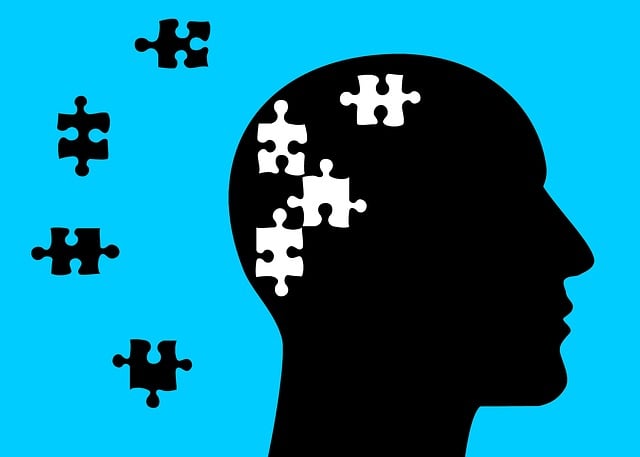Crisis intervention services, such as Englewood Bipolar Disorder Therapy, offer critical support during mental health crises. Tailored strategies like social skills training and stress management empower individuals with bipolar disorder to cope. Cognitive-behavioral therapy (CBT) and mindfulness practices reduce symptoms and provide lifelong coping mechanisms. Englewood Bipolar Disorder Therapy combines CBT, motivational interviewing, and accessible resources for improved management and stability.
In the realm of mental health support, crisis intervention strategies are vital to effectively managing acute episodes, such as those experienced by individuals with bipolar disorder. This article guides readers through essential aspects of crisis intervention, including understanding its role in mental health care and recognizing key signs of bipolar disorder during crises. We explore evidence-based strategies for intervention and delve into practical application, particularly focusing on Englewood Bipolar Disorder Therapy techniques to enhance client engagement.
- Understanding Crisis Intervention: A Key Component of Mental Health Support
- Identifying Signs and Symptoms: Recognizing Bipolar Disorder in Times of Crisis
- Evidence-Based Strategies for Effective Crisis Intervention
- Practical Application: Implementing Therapy Techniques for Engaged Clients with Bipolar Disorder
Understanding Crisis Intervention: A Key Component of Mental Health Support

Crisis intervention is a critical aspect of mental health support, designed to provide immediate and effective assistance during moments of intense distress or emotional turmoil. It focuses on stabilizing individuals, preventing further deterioration, and offering hope for recovery. When someone experiences a crisis, whether it’s a sudden traumatic event, an episode of severe anxiety, or even a bipolar disorder flare-up, as seen in Englewood Bipolar Disorder Therapy, prompt intervention can make a significant difference in their long-term well-being.
This process involves a range of strategies tailored to address the specific needs of each individual. For instance, social skills training and stress management techniques are powerful tools that enable people to cope with challenging situations more effectively. By teaching individuals how to recognize triggers, manage anxiety relief, and develop healthier coping mechanisms, crisis intervention aims to empower them to navigate future crises with resilience.
Identifying Signs and Symptoms: Recognizing Bipolar Disorder in Times of Crisis

In times of crisis, recognizing the signs and symptoms of bipolar disorder is a crucial step in providing effective crisis intervention guidance. Englewood Bipolar Disorder Therapy emphasizes the importance of understanding the unique presentation of this mental health condition. Individuals experiencing a bipolar episode may exhibit extreme mood swings, ranging from intense mania to deep depression. During manic episodes, they might display heightened energy, rapid speech, and impulsive behaviors, while depressive episodes can be characterized by prolonged sadness, loss of interest in activities, and changes in appetite or sleep patterns.
Social Skills Training and Compassion Cultivation Practices play a significant role in supporting individuals with bipolar disorder during crises. By teaching individuals effective coping strategies and fostering a sense of empathy, these practices enable better management of symptoms and stronger resilience. Crisis Intervention Guidance can be tailored to address specific challenges, ensuring that the individual receives the necessary support to navigate through intense emotional states and promote overall well-being.
Evidence-Based Strategies for Effective Crisis Intervention

In the realm of crisis intervention, evidence-based strategies have proven to be instrumental in effectively guiding individuals through tumultuous periods. These approaches are designed to offer immediate support and long-term solutions, catering to diverse needs including those with bipolar disorder, like those seeking Englewood Bipolar Disorder Therapy. One such strategy is cognitive-behavioral therapy (CBT), which helps individuals identify and change negative thought patterns and behaviors contributing to their distress. CBT has been shown to significantly reduce symptoms of anxiety and depression, fostering emotional healing processes that extend beyond the crisis.
Additionally, mindfulness practices have emerged as a powerful tool in crisis intervention. Encouraging individuals to focus on the present moment can help alleviate overwhelming emotions and provide a sense of calm. This is particularly beneficial for managing stress and preventing burnout, which are common issues even after overcoming an acute crisis. By integrating these evidence-based methods, professionals can facilitate effective interventions that not only address immediate concerns but also equip individuals with coping mechanisms to navigate future challenges, enhancing overall well-being and promoting anxiety relief.
Practical Application: Implementing Therapy Techniques for Engaged Clients with Bipolar Disorder

In the context of Englewood Bipolar Disorder Therapy, the practical application involves employing tailored therapy techniques to engage clients effectively. Given the unpredictable nature of bipolar disorder, therapists must adapt their approaches to suit individual needs. Cognitive-behavioral therapy (CBT), for instance, equips clients with coping strategies to manage mood swings and recognize early warning signs. By teaching them to challenge distorted thoughts and adopt healthier thought patterns, CBT empowers individuals to stabilize their moods.
Integrating motivational interviewing (MI) techniques further enhances engagement. MI helps clients explore and resolve ambivalence, encouraging them to make positive changes in their mental wellness journey. This approach is particularly valuable as it motivates individuals to adhere to treatment plans and maintain stability between manic or depressive episodes. The Mental Wellness Podcast Series Production and Trauma Support Services can play a crucial role in amplifying these therapeutic techniques by providing accessible resources for both clients and therapists, ultimately fostering better outcomes in managing bipolar disorder.
Crisis intervention strategies, particularly tailored for individuals with bipolar disorder, such as those practiced in Englewood Bipolar Disorder Therapy, are invaluable tools in mental health support. By understanding crisis intervention and its application, professionals can provide effective help during intense moments, potentially preventing severe episodes and promoting better outcomes. The evidence-based techniques discussed in this article offer a comprehensive guide to navigate and manage crises, ensuring individuals with bipolar disorder receive the necessary care and support.














